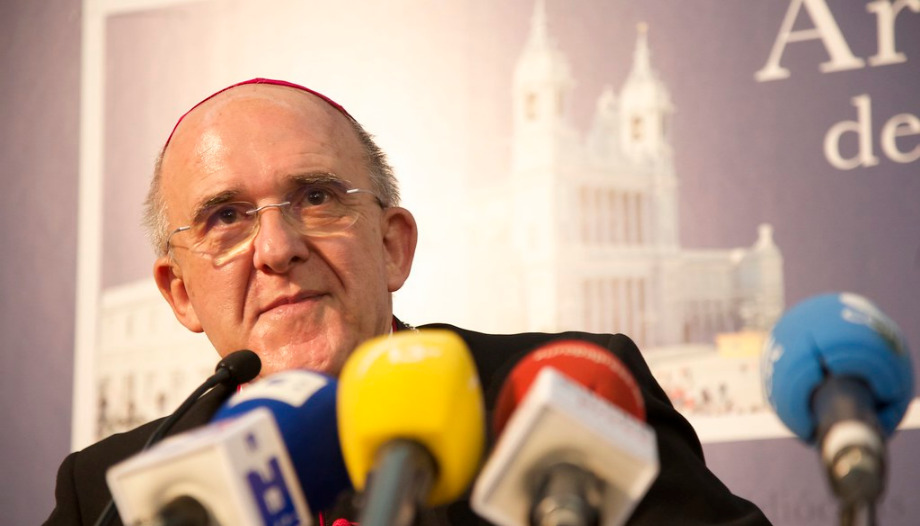At the end of last August, I took part in a meeting in Rome for consistory extraordinary meeting convened by the Pope to speak about the apostolic constitution Praedicate Evangelium. With this precious and highly recommended text, the Roman Curia reform concludes and reminds each of us believers that the Church "fulfills her mandate above all when she bears witness, in word and deed, to the mercy that she herself has freely received" (n. 1).
Although the meetings are behind closed doors, I can say that, for me, it was a gift to be able to share time and reflections on this mandate with the Successor of Peter and with the entire College of Cardinals, whose composition speaks precisely of the richness of our Church. Together we felt once again that the Lord is encouraging us to go on mission; we experienced how he encourages us and pushes us to bring the Good News to our contemporaries, wherever they are and in whatever conditions they find themselves.
As Francis has pointed out on numerous occasions during these years of his pontificate, Jesus himself sets us on a journey: "Go into the whole world and proclaim the Gospel to all creation" (Mk 16:15). Now, when the world is hit by so many conflicts and confrontations - from Ukraine to Ethiopia, passing through Armenia or Nicaragua - and many people - especially the most vulnerable - face the future with fear and uncertainty, it is more urgent than ever for Catholics to announce that Christ has conquered death and that pain cannot have the last word.
To emphasize the urgency of the mission, in my pastoral letter for the academic year that has just begun, entitled On mission: returning to the joy of the GospelI turn to the parable of the prodigal son or, better, of the merciful father.
We Catholics cannot remain closed in; we cannot be complacent and self-referential, nor should we lose our capacity for surprise or gratitude as happened to the older son in the parable. We must reach out to the baptized who, like the younger son, left home and drifted away from God's love, while at the same time we must seek out those who do not know Jesus Christ or who reject him.
In this key, it is moving to reread what the father of the parable says: "Son, you are always with me, and all that is mine is yours, but it was necessary to celebrate a feast and rejoice, because this brother of yours was dead and has come back to life; he was lost and we have found him." (Lk 15:31-32). In this father we see God, a God who loves us, a merciful God who has given us everything and who even allows us the freedom to leave.
In the diocesan phase of the Synod in Madrid, the desire to live that God loves us and also to show it to our brothers and sisters, to those who have gone away and to those who never knew him, came out clearly. For this, first of all, in our archdiocese it became clear that it is necessary that each one of us believers take care of prayer and the encounter with God, that we try to live the Gospel with coherence and that we do it also in community. We cannot be desert islands or close ourselves up in our groups, but we must feel part of the Church on pilgrimage in the world.
Only in this way will we be able to address, in second place, the challenges of the Church itself that arose during this phase, such as the concept of authority and clericalism; the responsibility of the laity and the generation of spaces for participation; the role of youth and women; attention to family life; the care of celebrations, so that they are alive and profound; the appreciation of the plurality of charisms; formation in synodality and the social doctrine of the Church, and greater transparency.
This will lead us, thirdly, to be a Church that, without hiding the truth, is always in a necessary dialogue with society. And it will also lead us to be a Samaritan Church with open doors; a Church that leaves no one stranded on the road, that helps and accompanies those whom society has left on the margins - like so many people in vulnerable situations - and that welcomes those who may have felt rejected even by the Church itself.
In a catechesis on discernment at the general audience of September 28 - which I am rereading as I finish these lines - the Pope turned to his beloved St. Ignatius to ask for the grace of "to live a relationship of friendship with the Lord, as a friend speaks to a friend". According to him, he met "an elderly religious brother who was a school janitor."who, when he could, "He approached the chapel, looked at the altar, said: 'Hello', because he was close to Jesus. "He does not need to say: 'Blah, blah, blah', not: 'Hello, I am close to you and you are close to me'," Francis asserted, putting the focus on that "this is the relationship that we must have in prayer: closeness, affective closeness, as brothers, closeness with Jesus". May we all know how to maintain this relationship with the Lord in order to embark, with determination, on the exciting mission that has been entrusted to us.
Cardinal Archbishop of Madrid.











